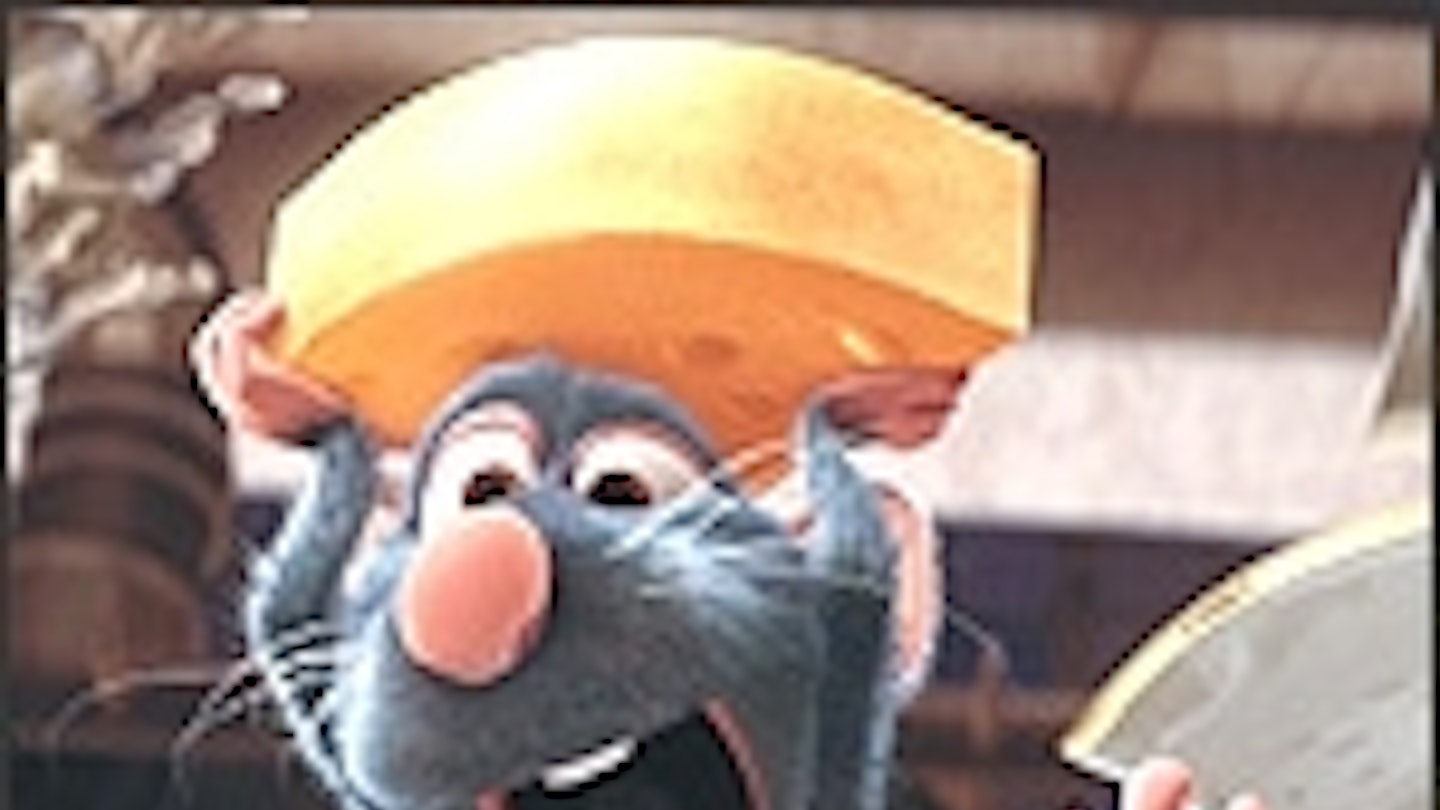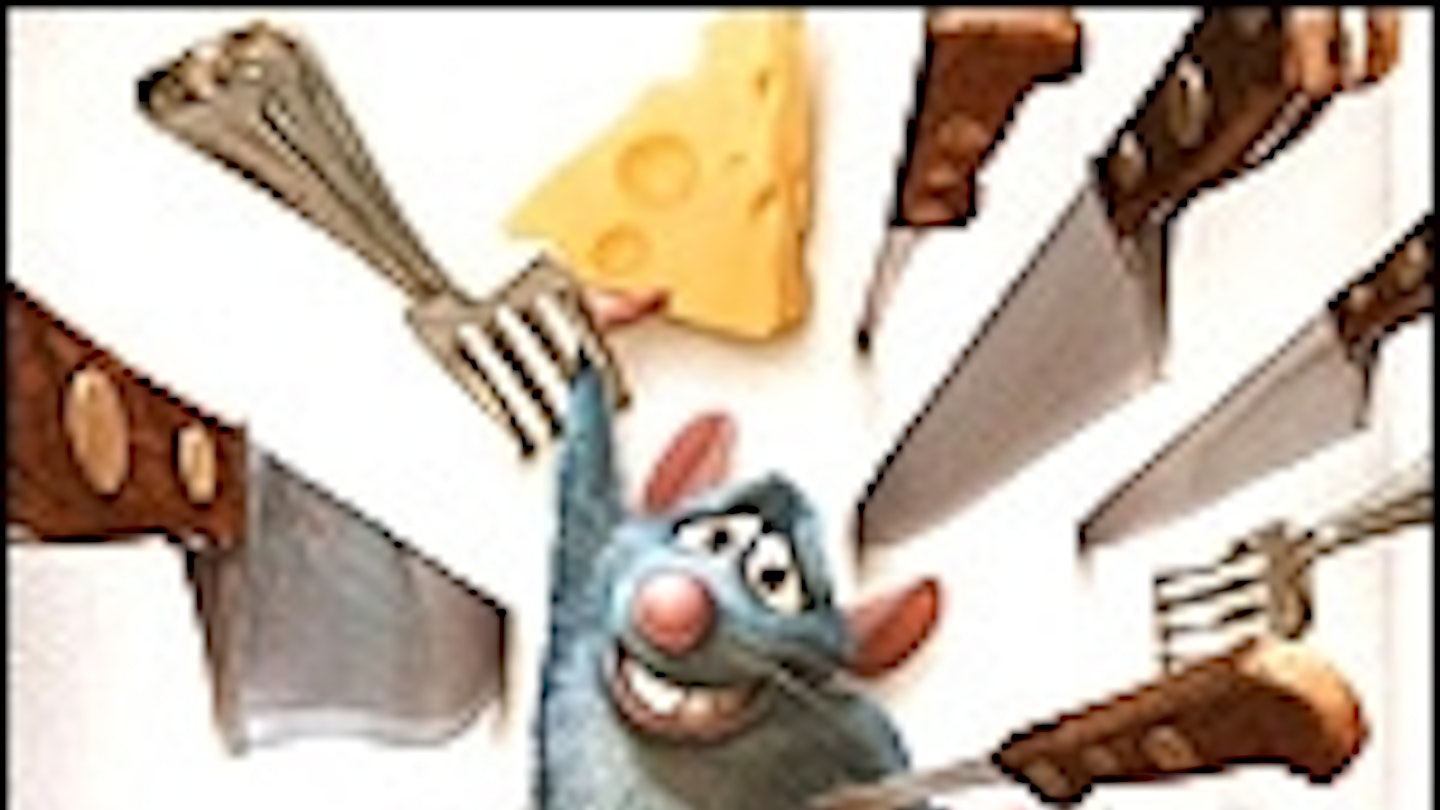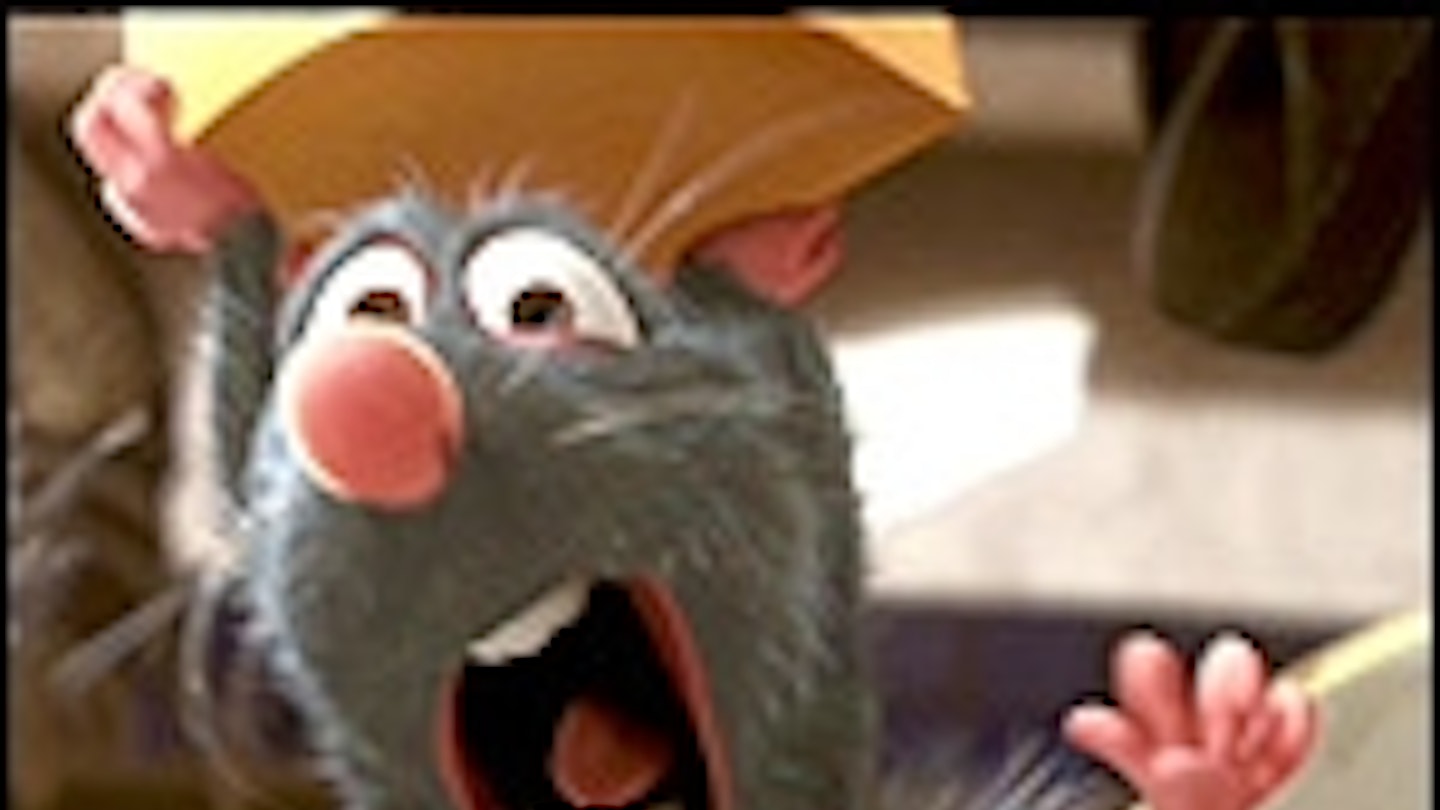Describe the plot of Ratatouille to most and they’ll likely turn up their nose as if assaulted by a bad smell. It’s about a rat who yearns to be a chef. That’s not cute, that’s not flip and postmodern. Couldn’t we make it a giraffe who wants to play golf, or a hippo who dreams of being a stunt-hippo, or a gerbil who aspires to play lead guitar in a heavy-metal band (please note, second-tier animation studios - these concepts are copyright Empire)? What’s cool about a rat in a kitchen? Isn’t it, like, kinda gross?
Au contraire, mes amis. After five minutes of Ratatouille you start getting excited about the time when you can buy it on DVD to use as life therapy, like a soothing bath or a dose of Librium. It may be Pixar’s masterpiece, but why quibble over niceties when they keep delivering stories this rich?
Even amongst the Hawaiian-shirted big brains of the Pixar think-tank, Brad Bird is taking on an auteurish hue for the fabulousness of his creations (The Incredibles being the last).
He remains intent on interpreting the foibles and grace notes of the species to which he belongs, even if it is through the medium of a rat. His latest quest is to decipher the soul of an artist who rises from the lowliest place: quite literally the sewer. Remy, not content to eat garbage like his brothers, has the very un-rat-like urge to soothe his palate with extraordinary tastes. He is a gourmand and, having spied the cooking programmes of famed but recently deceased Parisian chef Auguste Gusteau (Brad Garrett), is now entranced with the idea of creating transcendent meals that mix flavours like the giddy riffs of jazz. Gusteau is of the opinion
that “anyone can cook”. And a rat is listening.
To Remy, humans are an inspiration (“They taste...” he marvels. “They discover...”). To humans, Remy is vermin. A complicated state of affairs, especially when fate washes the talented rat into Paris, right next door to the late Gusteau’s classy eatery, currently suffering a downturn in fortune. Vulpine food critic Anton Ego (a character designed with Peter O’Toole’s Gothic tonsils fully in mind)
has been less than favourable, but Remy is drawn to the bustling kitchen like a pilgrim to the Holy Land.
Impeding his nascent greatness, apart from being a rat, are Gallicly tempered and vertically restricted head chef Skinner (Sir Ian Holm), and Remy’s sceptical rat-father (Brian Dennehy), who is determined he pursue more rat-like endeavours (like eating garbage). But as Brad Bird has it, art will out. Remy is slave to his own genius.
Scampering fretfully among the whirling ladles, carving knives and angry spurts from the gas burners, his delicate nose sniffs out the insulting scent of compromised soup and he can’t help but risk life and paw to remedy the dish. To leave it would be a sin against his soul.
The answer to his troubles is to go undercover, or under-toque, in cahoots with the supremely untalented new garbage boy Linguini (Lou Romano). This presents Bird and his animators with an awkward challenge - how does their world actually work? Their answer is anthropomorphic sleight-of-hand. Remy doesn’t talk: well, he does, but only in rattish, and it just so happens that we’re fluent. Linguini, his partner, doesn’t. All this bumbling fool can make out are the tinny squeaks of rat-kind. To confer the rat-chef’s talents to his goofy human sidekick, Bird goes one fictional step further, making Remy capable of operating a human being by tugging his hair follicles like puppet strings. The animated are now doing the animating.
It’s an inspired concept, transforming the cooking sequences into astonishingly animated slapstick homages to Mack Sennett, Buster Keaton and, in keeping with the French setting, herky-jerky French farceur Jacques Tati (a kind of proto-Bean), as Linguini is manipulated to concoct paradise in dish form.
Appropriately, this is also a riff on Cyrano De Bergerac, replacing one large-conked poet’s adoration of his cousin Roxanne with a large-conked foodie’s adoration of haute cuisine; both being forced to use an imbecilic intermediary. In one further really-shouldn’t-work device that Bird slips without a care into the spinning narrative,
we have the portly Gusteau as a floating figment of Remy’s overactive imagination to chivvy the little fella along. Remy, like many European artistes, is a whisker away from madness.
It’s farce and poetry both, able to make thrilling gearshifts from poignant characterisation into madcap as the film spills onto the streets to create chase sequences worthy of Chuck Jones or Fred Quimby. Visually, nothing is beyond these guys. From the fineness of Remy’s fur to the rain-slicked cobbles of the City Of Lights, they somehow grant synthesised surfaces the textures of life. Yet, the animation is at once extraordinary and hardly the point. So deft is the hand of Pixar that you are allowed to take their raptures of detail for granted - the incidental art is slave to the story. Pixar are not really animators at all, but storytellers par excellence whose carving knife happens to be a computer mouse.
By the third act, the standard recipe would be for Linguini to be de-toqued, the diminutive hero exposed and the villainous Skinner to be felled. That, though, is just one of the plot strands Bird has woven. Amid the flurry of impeccably timed disaster, Anton Ego will emerge from his coffin-shaped parlour to test this unforeseen turn-around at Gusteau’s and prove a salutary lesson for any critic as to their own worth. “Surprise me,” he sneers to the waiter, with the kind of disdain normally associated with Lady Bracknell or Daily Mail readers. So fully have you sunk into this animated world, so blurred are its joins with real life, that the resulting dish (designed with the help of hip chef Thomas Keller) lifts the film to rank alongside Babette’s Feast, Big Night or Ang Lee’s Taiwanese trilogy as literally mouth-watering. Although it rather takes the Happy Meal
tie-in off the agenda.
It is impossible not to read Remy as a straight metaphor for Bird or Pixar as a whole. They are unable to let the soup sour when the perfect mix of flavours can be reached. But the message may be more democratic - not everyone can be a great artist, but true art can come from anywhere. Bird is an artist who looks deep into humans (even in rat form) and sees something magic. His films feel like gifts.
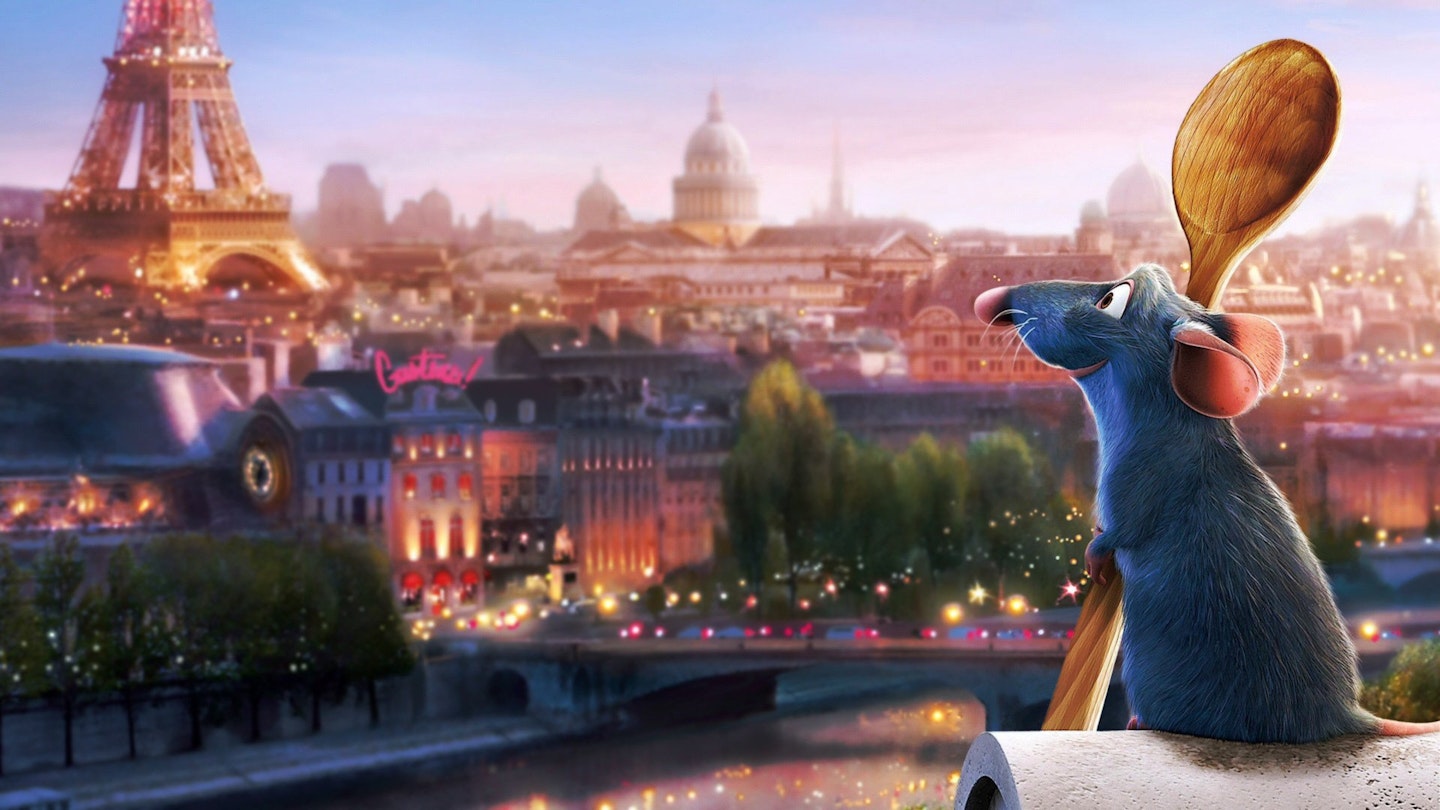
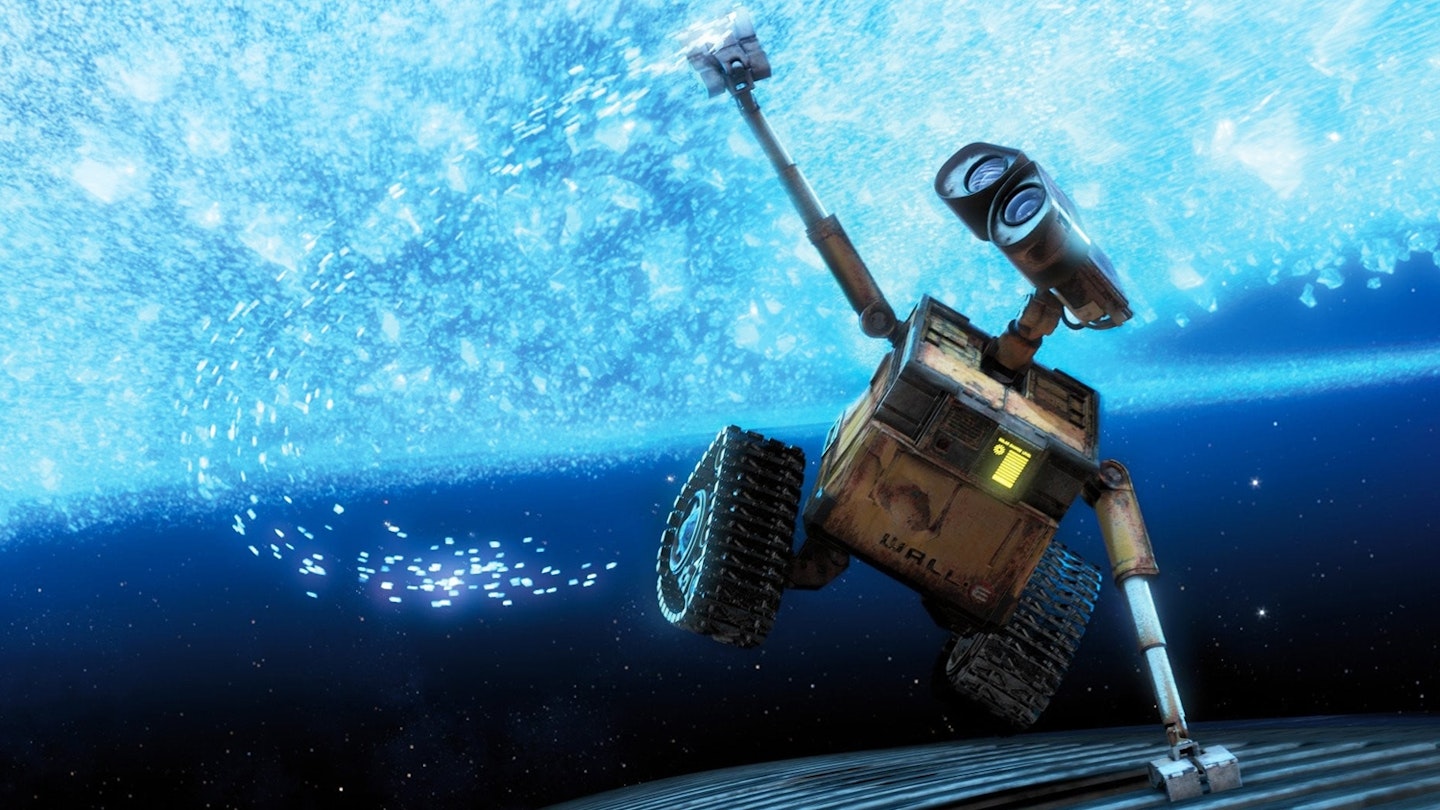
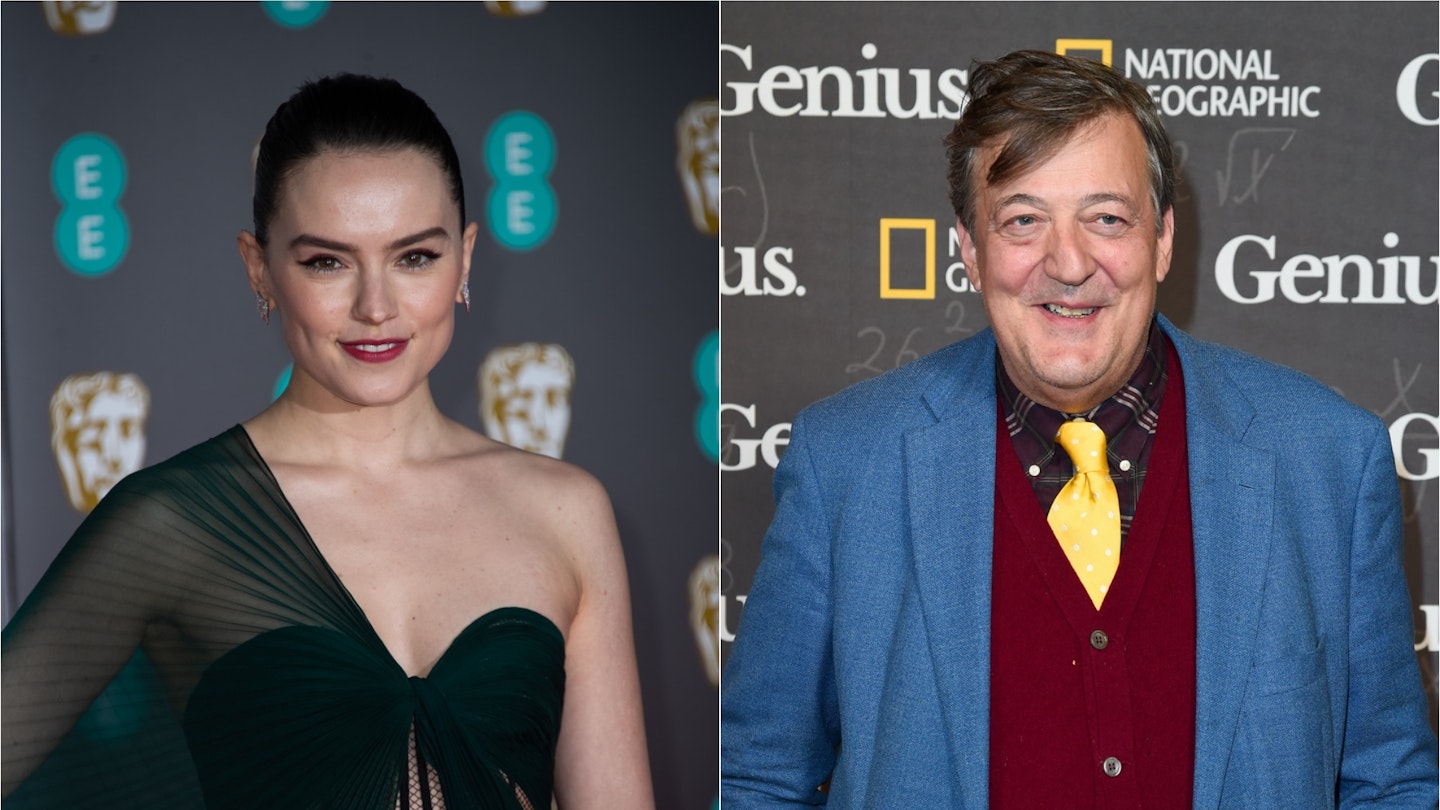
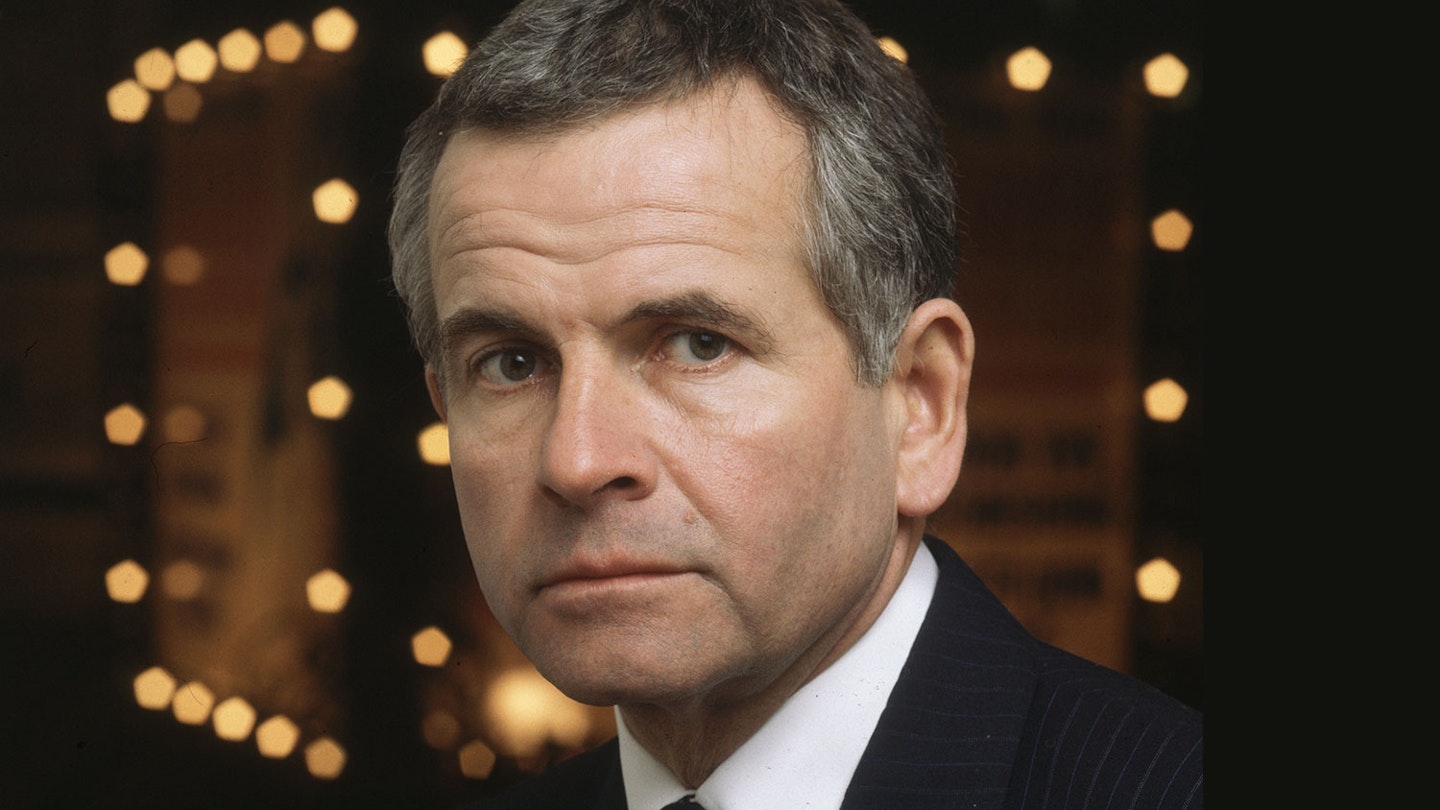
.jpg?ar=16%3A9&fit=crop&crop=top&auto=format&w=1440&q=80)
